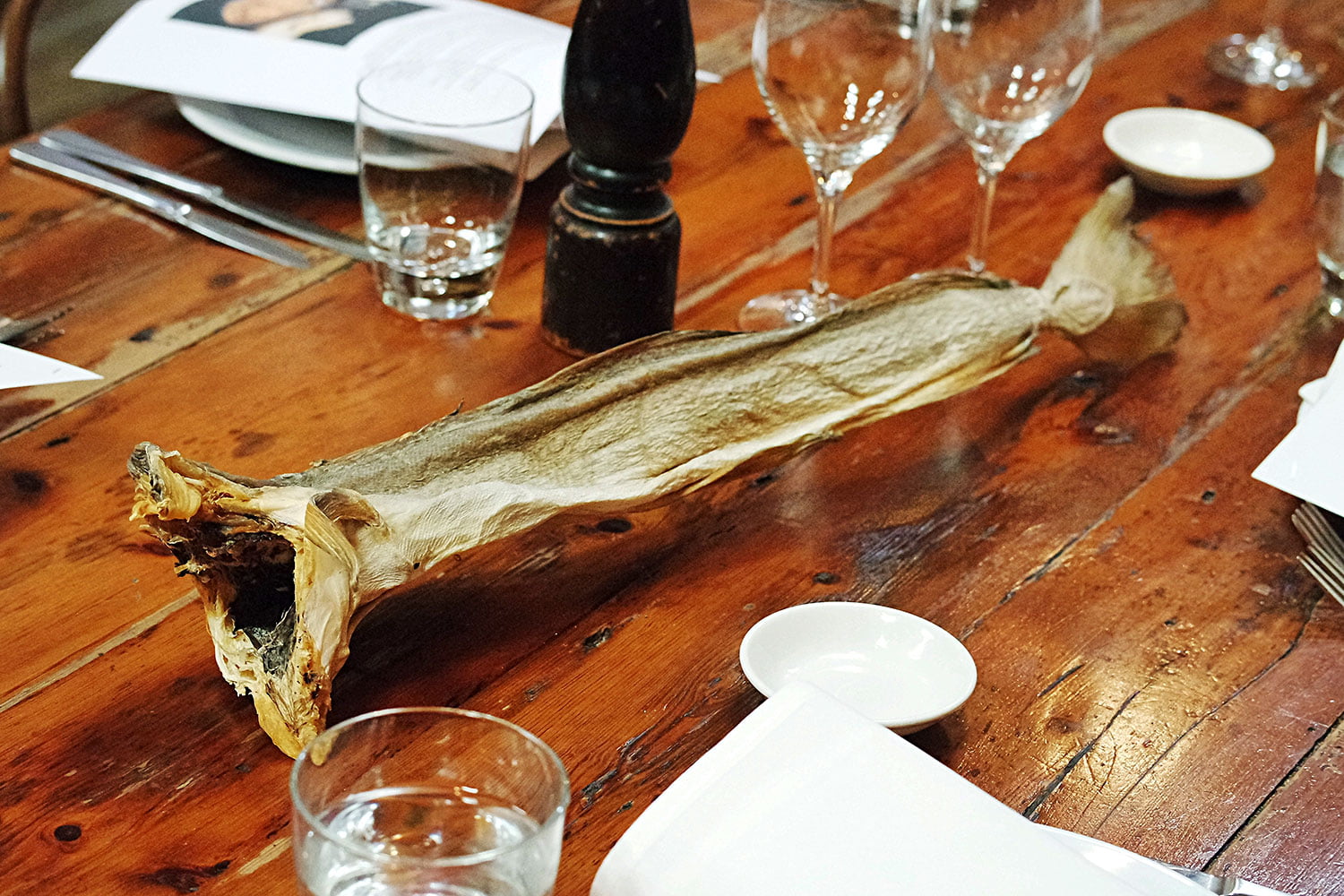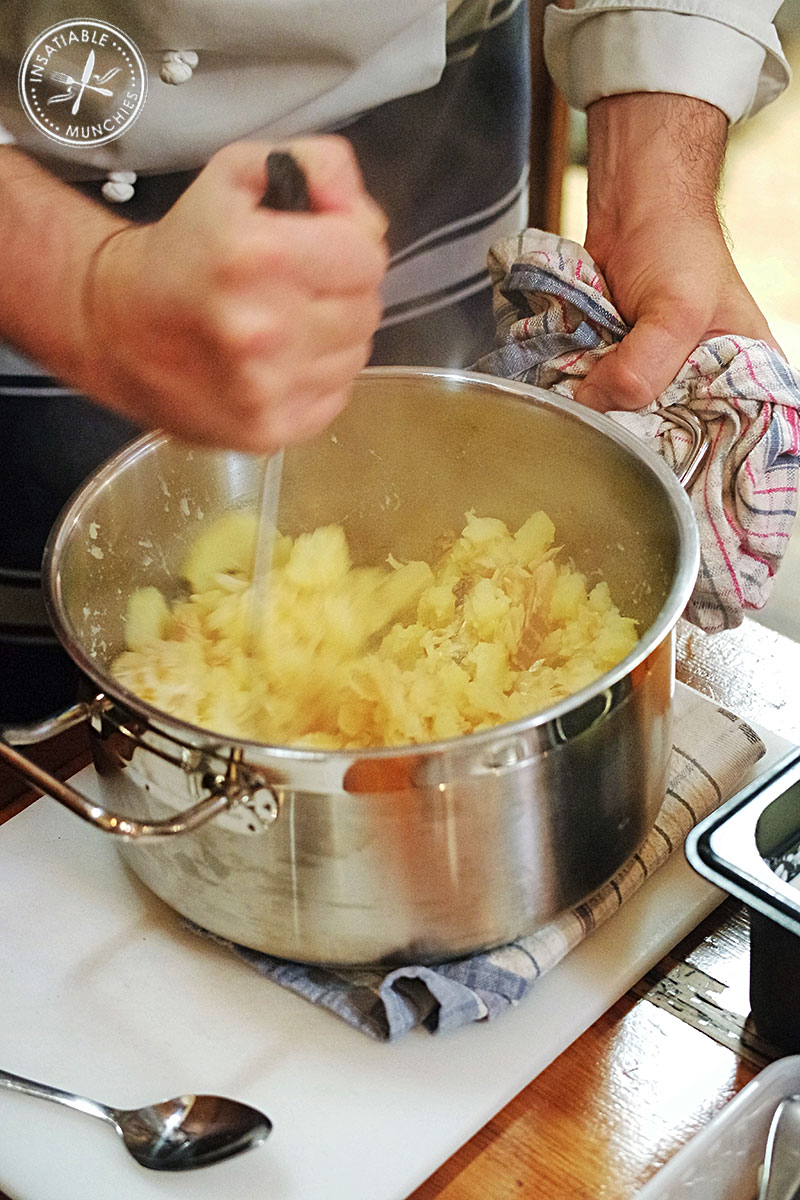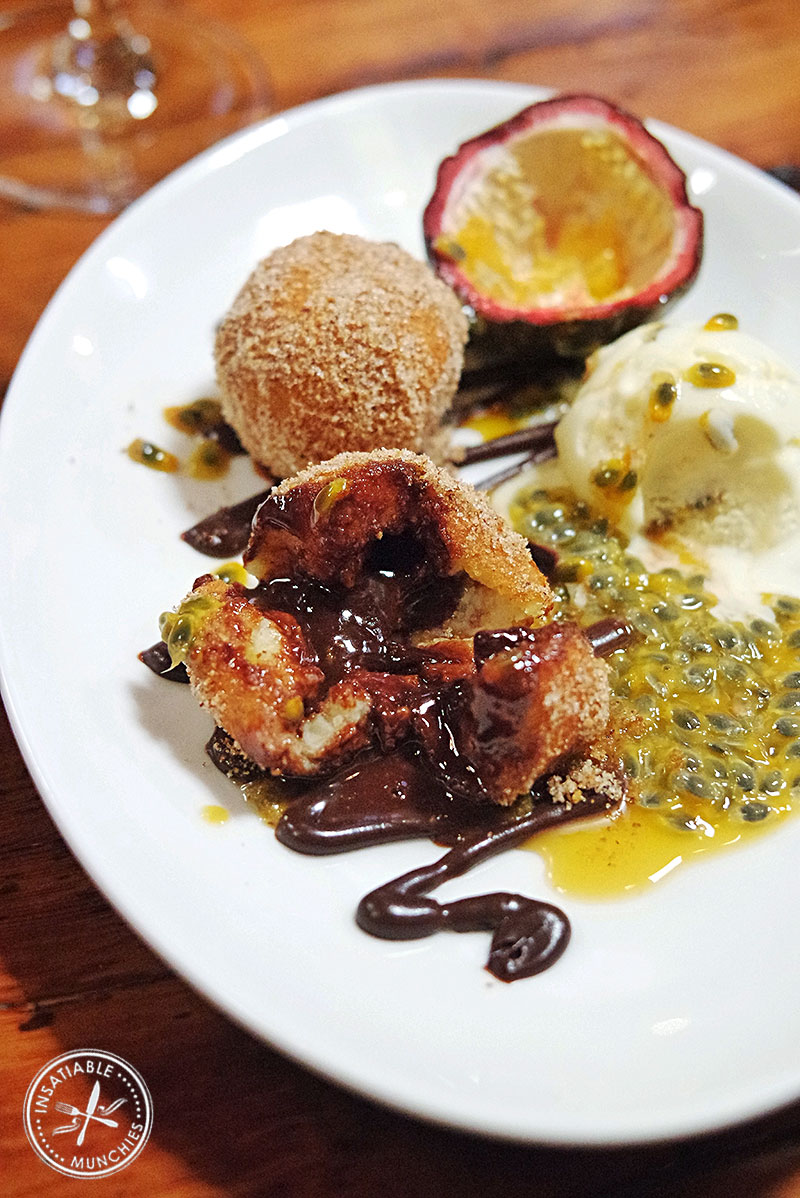Having grown up in Singapore, I have learnt to appreciate seafood in any form.
Especially when it’s dried, and intense.
As part of the Good Food Month Celebrations, Dalmatino in Port Melbourne put together a class celebrating a European favourite: Bakalar. This dried cod is a Norway export, and comes in different grades. The top grade of Bakalar, which we were using for the class, is made with line-caught fish, as opposed to net-caught, which prevents bruising in the flesh of the fish, but makes it rarer and more valuable. This particular cod is also not salted, which leaves the full cod flavour pure and intense, and the star of any dish that it is used in.
Besides sharing recipes and cooking methods with us – there’s a very specific way to rehydrate and cook the bakalar, we – The Smiling Foodie and myself – also learnt a bit about the history of this delicious fish from Chef Ino and the boisterous Croatian mamas that attended the class to see how his methods compare to their families’ recipes. Bakalar is believed to have been introduced by the Vandals, who sacked Rome, but left this fish. The Catholic Church then encouraged the eating of this fish – especially in no-meat days of the year, like Christmas Eve – and so you have a delicacy on your hands.
Chef Ino has very nicely shared his family’s Red Bakalar recipe – a rich tomato-based stew with hearty slices of potatoes and chunks of delicious dried cod.
- 1 Bakalar approximately 400g-500g
- 1kg potato, peeled and sliced to 1cm
- ½ bulb garlic, chopped
- 4 tomatoes, crushed
- 1 brown onion, finely sliced
- 250ml White Wine
- ½ bunch of parsley
- 200ml extra virgin olive oil
- 100ml milk
- Salt & pepper
- Soak bakalar in cold water for three days, changing water every day.
- [img src=”https://farm8.staticflickr.com/7492/15787644260_d11622a01e_o.jpg” width=”100%”]
- Clean bakalar from the bones (you can leave skin on) and cut on small pieces approximately 3cm or bigger.
- [img src=”https://farm8.staticflickr.com/7461/15787644200_9f016be01a_o.jpg” width=”100%”]
- Blend onion, garlic and tomato into a paste or until smooth. Combine this paste, bakalar, milk, oil and a little water just to cover all ingredients, season well and cook for 20-30 minutes on moderate heat.
- [img src=”https://farm8.staticflickr.com/7510/15972959291_b8e1851e95_o.jpg” width=”100%”]
- Add potatoes and a little water if necessary and cook for another 30 minutes shaking the pot only trying not to brake the bakalar too much.
- [img src=”https://farm8.staticflickr.com/7560/15787552818_965b887d9c_o.jpg” width=”100%”]
- When it’s nice and creamy consistency sprinkle with parsley and serve. I add teaspoon of honey to round flavour and better aroma of the bakalar.
- [img src=”https://farm8.staticflickr.com/7559/15789211507_36c79e9170_o.jpg” width=”100%”]
Being the only non-croatians there, there was some worry that we might not enjoy the smell of the cooking dried cod, but to me, it just smelled delicious. It was certainly a LOT less pungent than the Asian versions of dried seafood, and much more delicate in flavour. I was also quite surprised at how far a single piece of bakalar stretched – one 700g fish managed to create two savoury courses for 7 people, easy. And they weren’t even skimping on the fish!
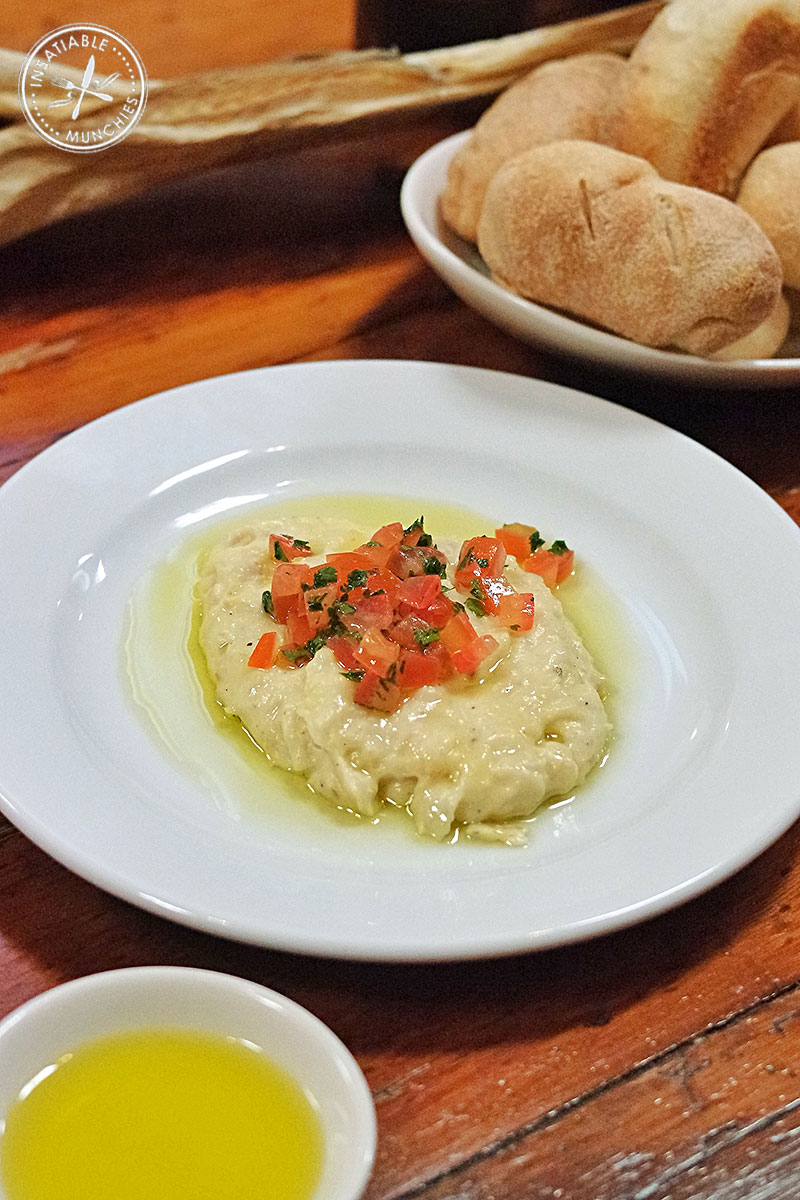 White Bakalar served up with fresh bread
White Bakalar served up with fresh bread
The White Bakalar is basically potatoes and fish, with garlic cooked to tenderness in milk. The resulting mixture is mashed with olive oil to create an emulsion, much like a mayonnaise.
The result was a light, creamy version of mashed potatoes, with flecks of intense cod flavour laced though the paste. Chef Ino served this up with freshly baked bread, and even though I’m not big on bread usually, the combination of the thick mash on fluffy, crusty bread was something I could just keep eating forever.
 Red Bakalar served with lightly dressed salad
Red Bakalar served with lightly dressed salad
The Red Bakalar was surprisingly hearty, especially considering the smallish list of ingredients. It was robust with flavour filled with incredibly addictive chunks of fish, contrasting with the smoothness of the white bakalar mash.
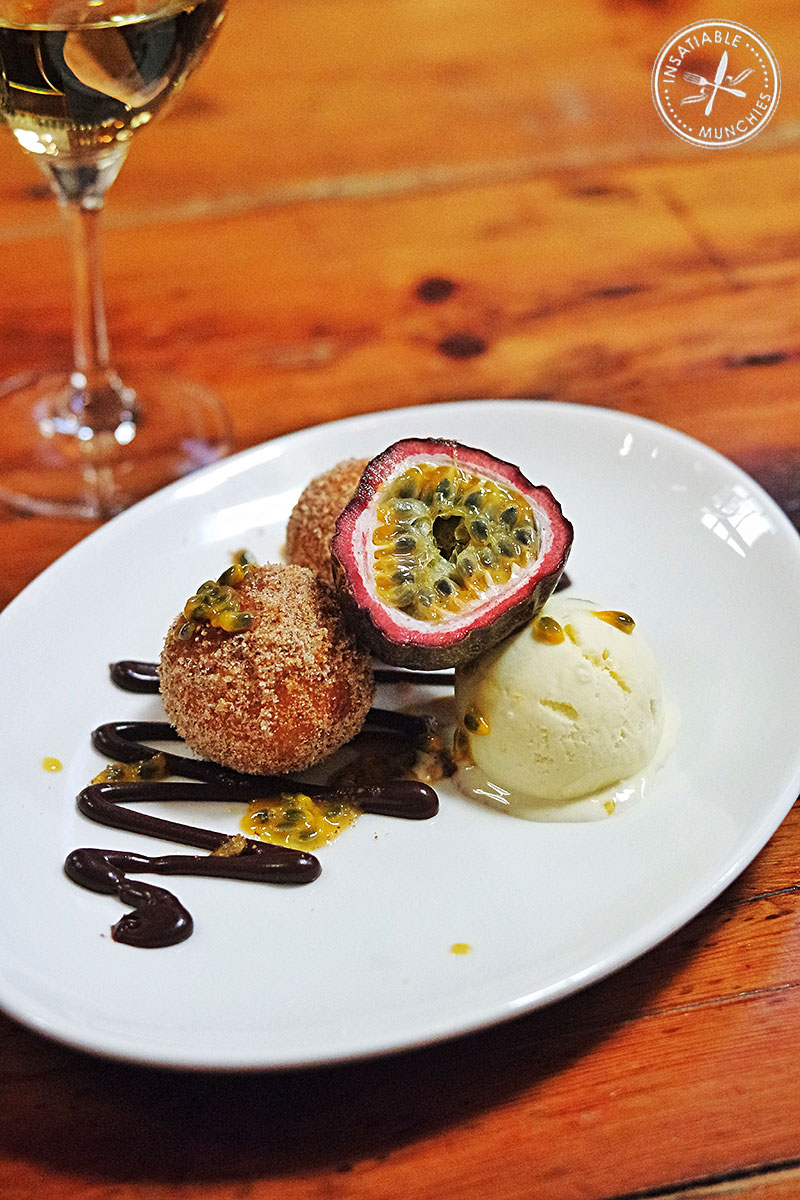 Chocolate Knedle with Passionfruit and Ice Cream
Chocolate Knedle with Passionfruit and Ice Cream
And to finish, Chef Ino brought out this decadent looking dessert – Chocolate Knedle with Passionfruit and Ice Cream.
Molten chocolate in a deep fried dumpling? Why, don’t mind if I do.
But seriously, this feast of dried cod was so familiar and so new at once, that it’s left me with constant cravings for the stew. Unfortunately, it’s not quite something that you can get in restaurants, but the Bakalar can be found at select European delis.
Insatiable Munchies attended this class as guests of The Age’s Good Food Month and Dalmatino.
